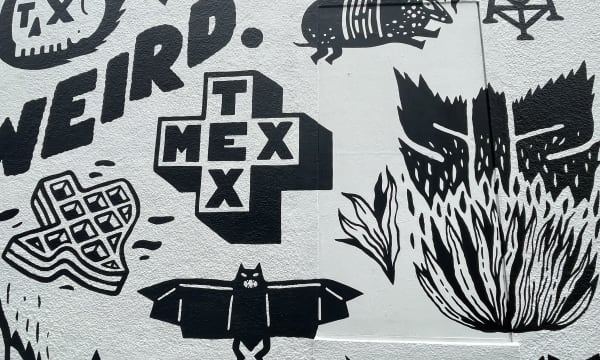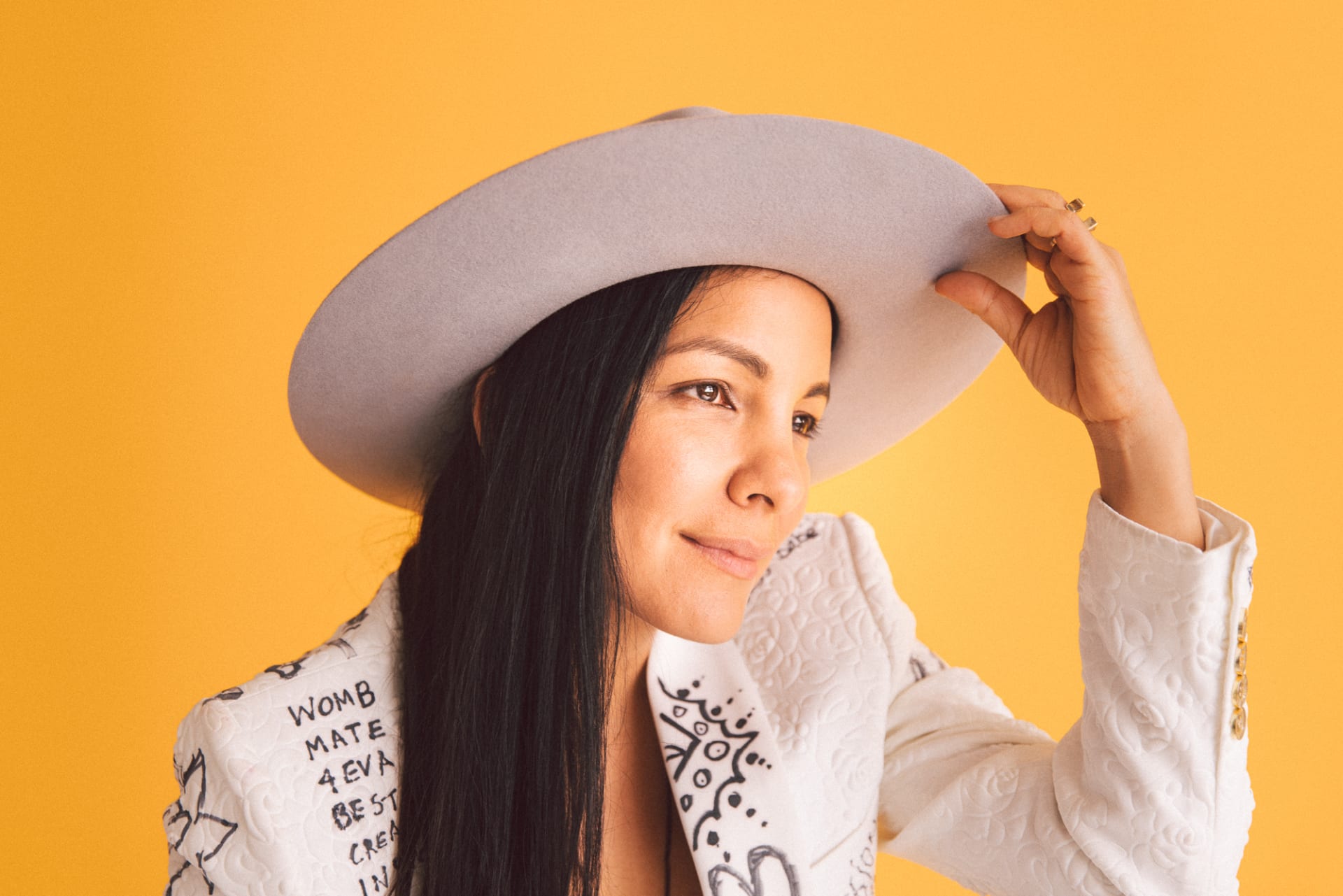Radha Agrawal is a social entrepreneur, community architect and experience designer. As cofounder, CEO, and chief community architect at Daybreaker, she has built a global movement, more than half a million people strong, that harnesses the power of collective dance for community. Among other projects, she is also founder of the Belong Center, a non-profit which aims to end loneliness, and pledges to open 100 Belong Centers across the United States to support individuals seeking community. Her book Belong
offers a step-by-step guide to building community and living a more connected life. At SXSW 2024, she presented her session The Power of Belonging: How Ending Loneliness Will Save Our Planet, unveiling a new formula for togetherness she dubs “the compass of belonging”.
"Marketing and advertising on the frontlines of belonging could change the world."

Agrawal has a broader perspective than most on how to build belonging. In her talk spanning insights drawn from more than a decade of studying and building community on every continent, she pointed to a universal sense of “quiet shame” when people feel lonely and misunderstood. “Civilization is built on togetherness” she said, but a culture of “toxic individualism,” that focuses “on just the ‘me’ and not the ‘we’” is pushing us into crisis. Put simply, poor social connection harms our health and no one is immune, regardless of identity or background.
To counter this, Agrawal has devised a tool called “the compass of belonging,” a simple formula for reconnection that points to four important ‘directions’ from which she says, many have become estranged. By following all these directions, and keeping them in balance, we can help fend off loneliness.
On the compass, the north represents a connection to the spiritual realm, which is not necessarily religious, and can relate to collective experiences like dance or meditation which deliver a sense of togetherness. The south represents the planet, the Earth and nurturing our connection to nature. The west stands for ancestry and connection to heritage and ritual: if we track back just ten generations, each of us can count more than 2,000 people in our lineage. Finally, the east stands for service, which Agrawal says, is about “how we show up in this in the spaces we inhabit and the value we bring to the humans around us.”
After the session, VML Intelligence sat down with Agrawal to find out more.
Radha, can you describe how you build community with Daybreaker?
Daybreaker is a small community, but small is the new big! We do five-hundred person events, but across the world, so the events feel communal, but the global community is massive. Daybreaker is like our ear to the ground. We get to learn so much, just from being in the zeitgeist, with real people. We get real-time cultural feedback. We’re also teaching people how to build community. After twenty years of doing this work, we asked how we can support other community builders, who want community to be the DNA. So that’s what we are doing now. We have a six-week curriculum, and we had 150 people in our last cohort and then 100 in the latest, so we are starting to grow.
Your work on community has taken you all over the world. Do you find that the problem of loneliness is more pronounced in more individualistic cultures?

Absolutely. [Here in the United States] we are built on the American capitalistic, rugged individualism ideal of the go against the grain, gun-toting cowboy. Other cultures have reverence for ancestors, for ritual and for community. We’re the ones to just reject everything. I do think that there's a really exciting opportunity to rebuild a spiritual fabric in this country.
When you walk around the city, you can feel a chemistry of loneliness and toxic individualism. I really feel like there is a fatigue around this, where people are like “what to do now?” There's a curiosity around, “guide me, show me, tell me what to do”. People are looking for a spiritual path. It's not necessarily religious, or God-specific, it’s just a spiritual path where you get to just allow yourself to be in this greater experience.
You have talked about Daybreaker events in terms of the emotional impact they deliver. Have you thought how you might measure the impact of belonging?
Yes we talk about Daybreaker in terms of the "tears of joy" it can deliver. Now at UC Berkeley, we're doing a study to measure awe, collective awe, the science of collective joy, dance and so on. It's a first of its kind of collective study, and for the first time you can do cheek swabbing, and test pre and post with facial recognition software, there are all kinds of ways to measure pre and post experience. It’s an exciting time for behavioral science because of all these new tools. And I feel like we'll be able to pair up with doctors on this idea of “the me and the we.” I like the idea of a future where the healthy body, a healthy ecosystem is a beautiful integration of “the me-we.”
Technology is often called out for its role in contributing to loneliness, but how do you see the role of AI specifically?
At best, AI will give you more free time, more leisure time. I really believe that. If used correctly AI will free you up from any research, any admin, any bullshit that bogs you down. Bring it on, right? I will have an immediate buddy supporting me.
As a human, it leaves me so much more time to dream, to create, to be in leisure with my friends. I’m an eternal optimist but I really believe that that is the hope for it.
And again, the road to hell is paved with good intentions. There is a dark side to it, of course. But I think it really comes down to seeing AI as a tool and not as an escape.
What can brands do to foster a stronger sense of community?
Marketing and advertising on the frontlines of belonging could change the world. I have a whole vision for how we can brand cities for the future. Grey asphalt? No, let's make it rainbow color. Every awning, every restaurant, every wood bench, and sign. We can literally brand cities in deeply connected ways so it’s just in the zeitgeist. It's on the signage, it's in the advertising, in magazines. We can begin feeding this culture of belonging inside every piece of content that we create.
Brands all want to build community, but they don't know how to do it. If we can be agents, in service of building community and belonging every single brand will sign on for this. So, moving from a culture of marketing to a culture of a community architecture. It’s a win-win but also there's this beautiful upward spiral for society.

The title of your SXSW talk mentions saving the planet…
Our sense of loneliness is contributing to our lack of regard for the planet. “I don't care. I'm unhappy. I'm sad. I'm lonely. I'm gonna buy the big car.” If you actually cared about your life like you belong to the planet, as in the compass of belonging, you would be like, “Maybe I should rethink this McMansion that I'm about to get.” I really do think our sense of loneliness is deeply tied to our footprint. We need to change the culture. What does the culture of enough look like? We need a culture of sufficiency.
All images courtesy Radha Agrawal.
Please provide your contact information to continue.
Related Content

SXSW 2024: Key Trends

